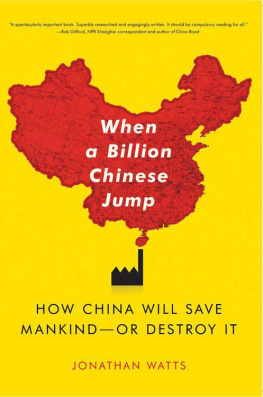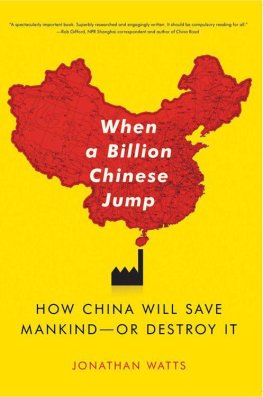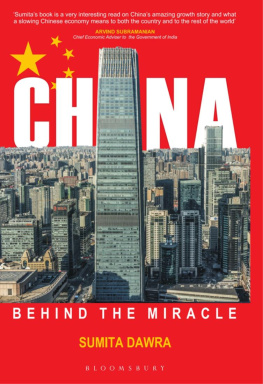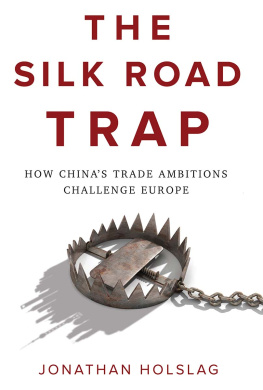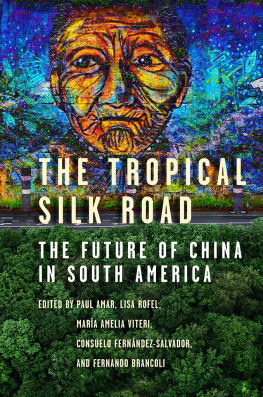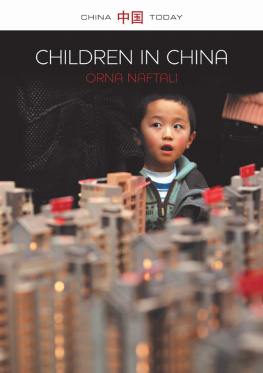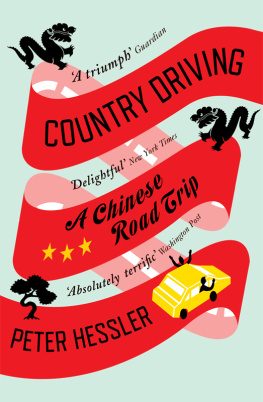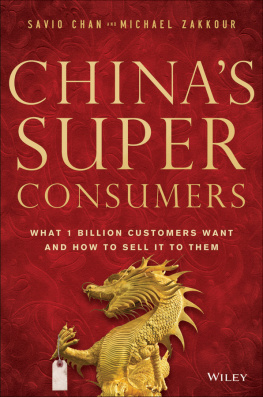Praise for When a Billion Chinese Jump
This is the book on China and climate change that the West has been waiting for. Watts uses his long experience of China to track the countrys environmental calamity up close, uncovering its causes, its contradictions and its shocking human toll. Then he poses perhaps the most seminal question of allcan it save itself and, by extension, the planet?
James Kynge, author of China Shakes the World
The worlds chance of avoiding catastrophic climate change rests in large part with decisions being made today in Beijing. If China raises its standard of living to Western standards without controlling the emissions from industry and power plants, it will wreak havoc with the worlds climatewith unforeseeable and irreversible consequences. If it takes the road now opening up to a low-carbon economy and leads the world in developing and deploying clean energy technologies, it can show the way to a sustainable future for the planet. Jonathan Watts turns a keen eye on Chinas choicespreviously made and yet to comethat will affect us all.
Timothy E. Wirth, president, United Nations Foundation
and Better World Fund
Jonathan Watts brings us up to date on Chinas economic miracle and the environmental consequences not only for China but for the entire world. With wonderful travelogue-like writing, Watts takes us on an incredible journey through todays Chinaand our tomorrow.
Lester R. Brown, president of Earth Policy Institute and author
of Plan B 4.0: Mobilizing to Save Civilization
This is the environmental book that I am most looking forward to for 2010. I admire Jonathan Watts for his rigorous approach to journalism and his devotion to human stories at the grass roots.
Ma Jun, founder of the Institute of Public and Environmental Affairs and author of Chinas Water Crisis
A fascinating, engaging, and beautifully written book. Jonathan Watts shines a light onto an issue that affects us all but of which we are woefully ignorant. This book succeeds in both informing and entertaining us. It is a masterpiece.
George Monbiot, author of
Heat: How to Stop the Planet from Burning
This is a spectacularly important book, superbly researched and engagingly written. Jonathan Watts has given us a shocking eyewitness account of Chinas environmental meltdown. It should be compulsory reading for all.
Rob Gifford, NPR Shanghai correspondent
and author of China Road
Watts has written a nationwide audit of where Chinas environment stands as of the end of the first decade of the twenty-first century. His eyewitness accounts are the great strength of this important book.
Kerry Brown, Times Higher Education (UK)
An excellent read. A few good gags in it, too, something few writers on China dare ever to try.
Paul French, author of Through the Looking Glass:
Chinas Foreign Journalists from Opium Wars to Mao
Meticulously documented, wide-ranging account this is a revealing and depressing book. There is no middle truth in it. During his painstaking investigative journeys, which called on all his powers as a top-class reporter, Jonathan Watts concluded that China has felt at times like the end of the world.
Jonathan Mirsky, Literary Review (UK)

SCRIBNER
A Division of Simon & Schuster, Inc.
1230 Avenue of the Americas
New York, NY 10020
www.SimonandSchuster.com
Copyright 2010 by Jonathan Watts
Maps Andrs Bereznay
First published in Great Britain in 2010 by Faber and Faber Limited
All rights reserved, including the right to reproduce this book or portions thereof in
any form whatsoever. For information address Scribner Subsidiary Rights Department,
1230 Avenue of the Americas, New York, NY 10020.
First Scribner trade paperback edition October 2010
SCRIBNER and design are registered trademarks of The Gale Group, Inc., used under
license by Simon & Schuster, Inc., the publisher of this work.
For information about special discounts for bulk purchases, please contact Simon &
Schuster Special Sales at 1-866-506-1949 or business@simonandschuster.com.
The Simon & Schuster Speakers Bureau can bring authors to your live event. For more
information or to book an event contact the Simon & Schuster Speakers Bureau at
1-866-248-3049 or visit our website at www.simonspeakers.com .
Designed by Carla Jayne Jones
Manufactured in the United States of America
1 3 5 7 9 10 8 6 4 2
Library of Congress Control Number: 2010029901
ISBN 978-1-4165-8076-8
ISBN 978-1-4391-4193-9 (ebook)
To Aimee, Emma, and Murray
Contents
Introduction
Beijing
As a child, I used to pray for China. It was a profoundly selfish prayer. Lying in bed, fingers clasped together, I would reel off the same wish list every night: Dear Father, thank you for all the good things in my life. Please look after Mum and Dad, Lisa (my sister), Nana, and Papa, Toby (my dog), my friends (and here I would list whoever I was mates with at the time), and me. After this roll call, the sign-off was usually the same. And please make the world peaceful. Please help all the poor and hungry people, and please make sure everyone in China doesnt jump at the same time.
That last wish was tagged on after I realized the enormousness of the country on the other side of the world. For a small British boy growing up in a suburb of an island nation in the 1970s, it was not easy to grasp the scale of China. I was fascinated that the country would soon be home to a billion people.
I was a born worrier and this made me more anxious than anything I had heard before. For the first time, my young mind came to grips with the possibility of being killed by people I had never seen, who didnt know I existed, and who didnt even need a gun. I was powerless to do anything about it. This seemed both unfair and dangerous. It was an accident waiting to happen. Somebody had to do something!
Life suddenly seemed more precarious than I had ever imagined. In variations of my prayer, I asked God to make sure that if Chinese people had to jump, they only did it alone or in small groups. But in time, my anxieties faded. With all the extra maturity that comes from turning six years old, I realized it was childish nonsense.
I did not think about the apocalyptic jump again for almost thirty years. Then, in 2003, I moved to Beijing, where I discovered it is not only foolish little oiks who fear China leaping and the world shaking. In the interim, the poverty-stricken nation had transformed into an economic heavyweight and added an extra 400 million citizens. China was undergoing one of the greatest bursts of development in history and I arrived in the midst of it as Beijing prepared for the 2008 Olympics.
The citys transformation was vast and fast. Down went old hutong alleyways, courtyard houses, and the ancient city walls. Up rose futuristic stadiums, TV towers, airport terminals, and other monuments to modernization. Restaurants and bars one day were piles of rubble the next. Tens of thousands of old walls were daubed with the Chinese character chai (demolish). The hoardings around a nearby development site were decorated with giant pictures of the old city and a half-mocking, half-mournful slogan: Our old town: Gone with the wind.
Living amid such a rapidly shifting landscape, it was hard to know whether to celebrate, commiserate, or simply gaze in awe. The scale and speed of change pushed everything to extremes. On one day, China looked to be emerging as a new superpower. The next, it appeared to be the blasted center of an environmental apocalypse. Most of the time, it was simply enshrouded in smog.
Next page
